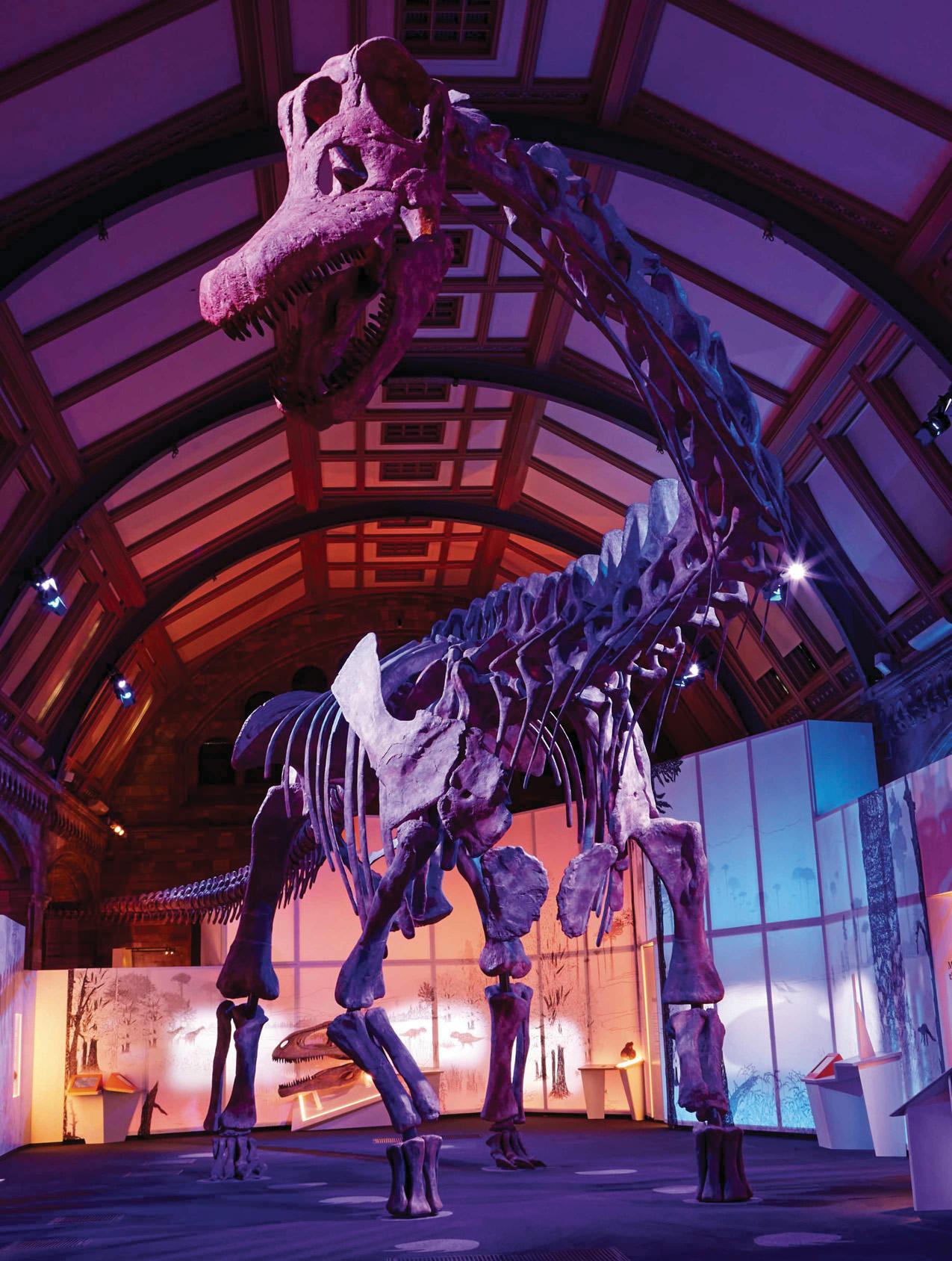
MILLIONS OF YEARS AGO, M Earth was ruled by giants. Pterosaurs with 12m wingspans darkened the skies, dragonflies the size of widescreen televisions buzzed among the undergrowth and sauropods the length of a jumbo jet browsed the treetops.
And there was one that was probably bigger than them all: the Cretaceous colossus that was Patagotitan mayorum, whose replica skeleton currently fills the Waterhouse Gallery at the Natural History Museum.
Clocking up some 57 tonnes in weight and measuring 37m from nose to tail, Patagotitan is the largest, most complete dinosaur currently known. It was a member of the titanosaur family, in turn part of the wider sauropod group known for their immensely long necks and thick, squat limbs. Diplodocus was a sauropod, as was Brachiosaurus - the gentle creature we see feeding from the canopy in that captivating scene in Jurassic Park. But while we've known about 'Dippy' and Brachiosaurus for more than a century, Patagotitan was only discovered in 2010, hot on the hefty heels of many other new titans, such as Puertasaurus (2001), Dreadnoughtus (2005) and Argentinosaurus (1987).
Indeed, we are currently experiencing something of a golden age of dinosaur discovery. An average of 50 new species are being added to the tally each year, with a current running total of about 700 (and counting). The boom has been driven by two main factors. "There are now many more people working on dinosaurs in countries in South America, Africa and Asia, which didn't have palaeontologists before," says Paul Barrett, dinosaur specialist at the Natural History Museum in London. "These locations are naturally rich in fossil remains, so the rate of discovery is going up. We're also finding new species by re-assessing existing collections. In my time at the Museum, we've discovered about 10 new species from material that hadn't yet been worked on or had been misidentified."
Denne historien er fra August 2023-utgaven av BBC Wildlife.
Start din 7-dagers gratis prøveperiode på Magzter GOLD for å få tilgang til tusenvis av utvalgte premiumhistorier og 9000+ magasiner og aviser.
Allerede abonnent ? Logg på
Denne historien er fra August 2023-utgaven av BBC Wildlife.
Start din 7-dagers gratis prøveperiode på Magzter GOLD for å få tilgang til tusenvis av utvalgte premiumhistorier og 9000+ magasiner og aviser.
Allerede abonnent? Logg på

SNAP-CHAT
Justin Gilligan on giant spider crabs and holding hands with an octopus

STEPPE CHANGE
Herds of saiga have returned to Kazakhstan, but there's a fine balance to tread

TREES FOR LIFE
Community is at the heart of conservation in the tropical forests of southern Belize

WHEN DOVES CRY
Turtle doves are now the UK's fastest declining bird species, but the RSPB is on a mission to save them

SURVIVAL OF THE CUTEST
We can't help being drawn to cute creatures, but our aesthetic preferences both help and hinder conservation

LIGHT ON THE NORTH
Spectacular images of Arctic foxes, reindeer and musk oxen reveal the wild beauty and diversity of Scandinavia

ROLLING IN THE DEEP
The super-sized crustacean that lives in the deepest, darkest ocean

LET'S GET TOGETHER
Clay licks deep in the Amazon explode in a riot of colour, with macaws the stars of the show

FEMALE OF THE SPECIES
To sponge or not to sponge? That is the question for the bottlenose dolphins (Tursiops aduncus) living in Shark Bay, Western Australia.

7 nature encounters for the month ahead
WITH NATURALIST AND AUTHOR BEN HOARE